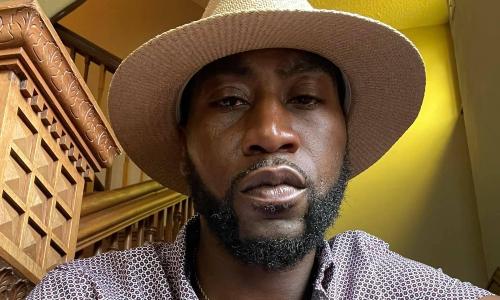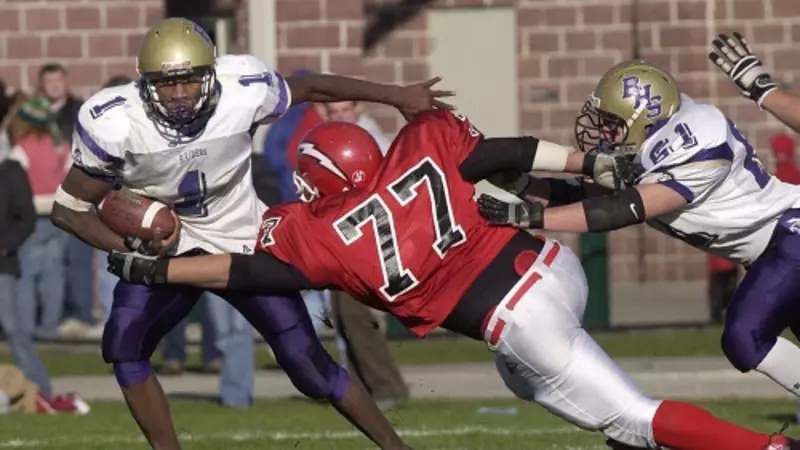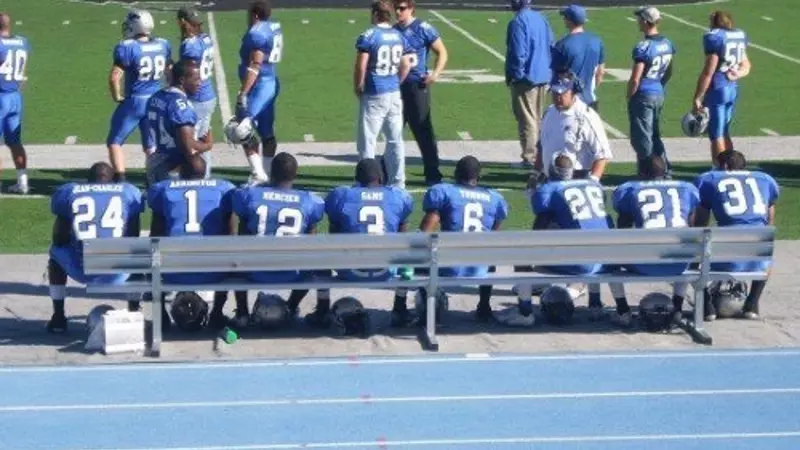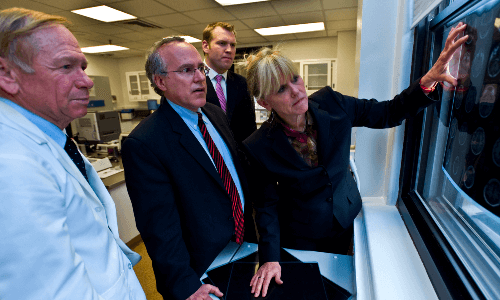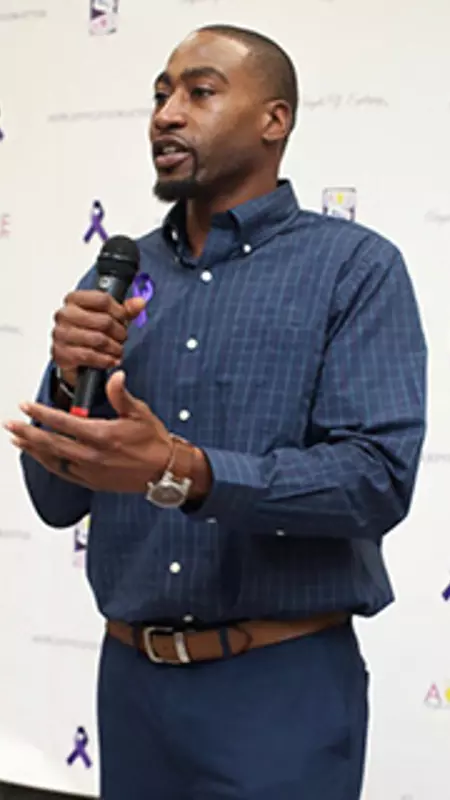
Having financial control of my life again is amazing. I don’t have to rely on others to provide for myself or for my daughters. I am reminding myself of what I am capable of. I can work. I can buy things. I can go on runs and work out again.
Rivian’s company slogan is “keep life adventurous forever.” Returning to normal life after what I’ve been through has been an adventure. I’ve had to brave the unknown and adjust to a new reality. But I am so grateful for the opportunity to do so. I hear other people complain about going to work every day and I will never be one of those people. I am humbled to get up and go to work every day and to be in control of how I feel at work every day.
I’ve lost a lot and know the journey ahead won’t be easy, but at least I’m in control again. I want the next generation of football players to be in better control of their mental health than I was.
Don’t get me wrong – I love football. I still watch the game. I played defensive back and I understand how difficult it is to keep your head out of tackles, so I get upset when I see players get ejected or penalized for targeting. We should try to limit the amount of head-to-head contact as much as possible, but I worry we are focusing too much on penalizing the big hits. We also need to focus on making sure players with concussions are comfortable speaking up about their symptoms. We need training staffs to give thorough concussion evaluations to players after big hits. And perhaps most importantly, we need to be looking after athletes’ mental health after they suffer concussions. Kids playing football, chasing their dreams, shouldn’t have their lives and their futures destroyed from playing the game. Our brain is the most important tool we have, and we shouldn’t sacrifice that for football.
That starts with us as players. People on the outside can’t tell if you’re struggling unless you let them know. I want players to be able to say, “I’m scared. I’m hurt. I’m in pain. I’m out of control.” We look like these big, strong people who are invincible. But we need to get away from being silent about what we’re feeling.
But we also need allies. So many people are in invisible battles with brain injury, mental health, and mental illness. If you see someone struggling and you don’t understand why, consider the root cause of their problems. They might not be in control of their situation.
I give CLF a pat on the back on behalf of people like me. Knowledge and understanding are essential. CLF and other organizations in the space are key to education the public and supporting the brain injury community to move forward. Thank you for the platform and allowing me to be an advocate for others.
October 2022 Update to Adrian’s Story
I was motivated to write another update on my story because the idea of control continues to be a constant in my life.
First, the death of former Denver Broncos receiver Demaryius Thomas in December and his CTE diagnosis this summer was very alarming to me. Demaryius Thomas died of a seizure. I have had hundreds of seizures due to my epilepsy. People in the epilepsy community live with a fear of sudden unexpected death. Demaryius’ death and diagnosis were reminders of the realities of what I’m up against and the lack of control I have.
Second, I’ve lost my job and my marriage in the past year. These losses have been painful and made me reflect on certain things.
I lost my job because I was having seizures at work. As I wrote in my last story, I underwent a surgery that helps to limit the severity and frequency of my seizures. That has been extremely helpful for my day-to-day life, but my job had me working around lithium batteries. Lithium exposure can trigger seizures, so my job became unsafe for me. There’s another example of control – my disabilities limit the amount of work I’m able to do and therefore hurt my ability to support myself and my family.
I came into a relationship sick and lost. While I was figuring out my health situation, my health put stress on those around me and made it difficult to being a man living in a no-excuses society. Ultimately, I don’t want others to be miserable trying to be there for me.
I know there are plenty of other people with brain injuries who have been separated from their families. My message to them is to continue doing the best with what you have.
Our brains control everything. And injuries to our brains can therefore change everything, too. It’s extremely hard for people like me who live with brain injuries. We are constantly fighting to be the people we once were. We are fighting against society to tell them we have these disabilities. We fight through physical and emotional pain we can’t control.
We can apologize for the pain our brain injuries have caused others. But we can’t apologize for getting up and trying our best to survive in a world that’s not equipped for our disabilities.
